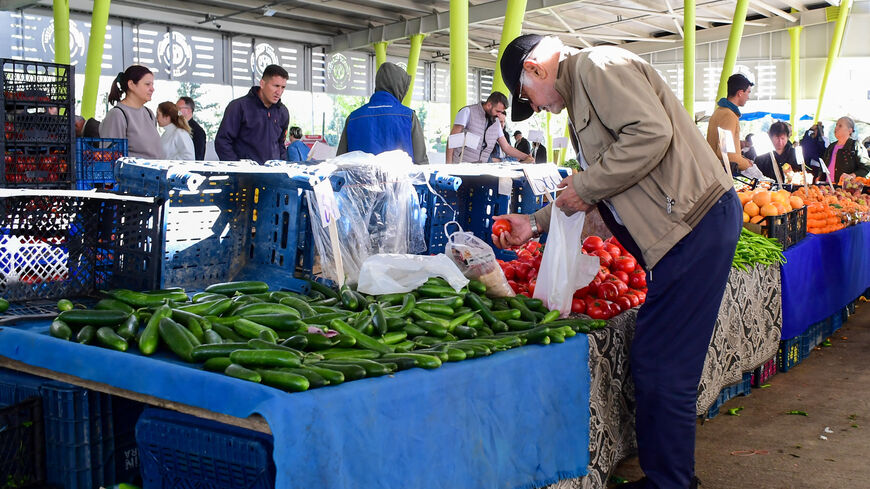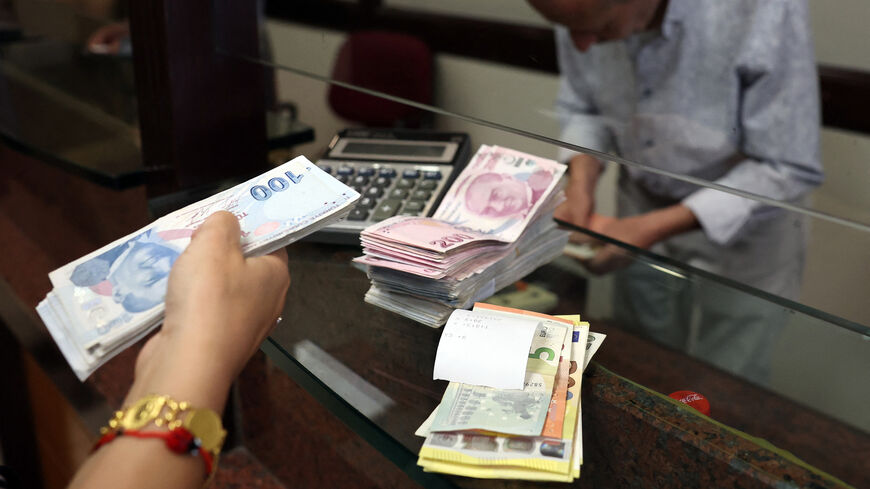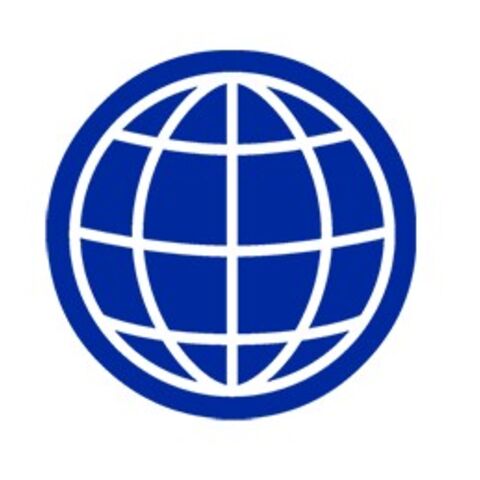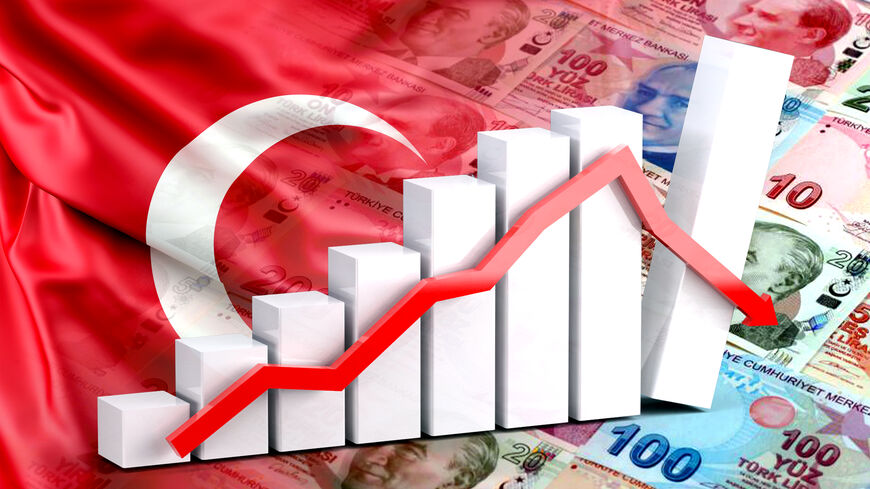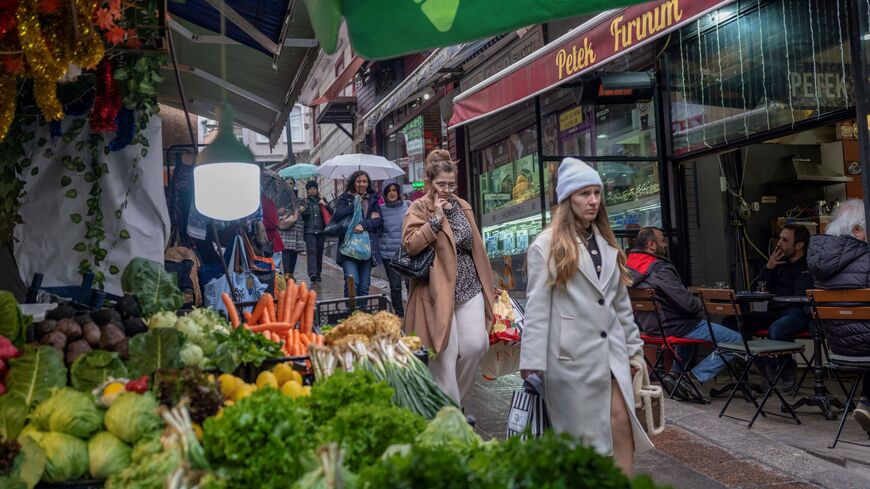Turkey's annual inflation surges to 15-month high of 67%
With Turkey's annual inflation at 67%, a 15-month high, analysts argue that the Central Bank will need to resume monetary tightening.
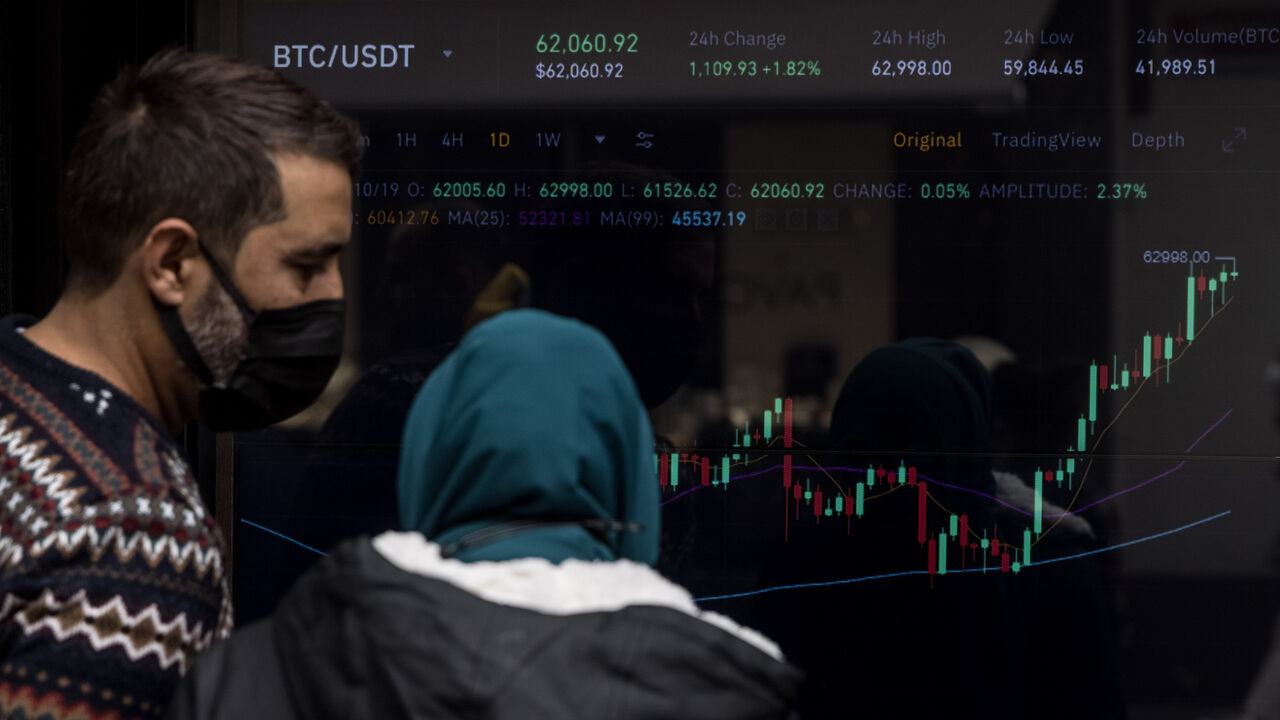
ANKARA — Turkey's annual consumer inflation rate rose to over 67% in February, according to official data released on Monday.
The year-on-year inflation, which surged last month to 67.07% — the highest in the past 15 months — was driven primarily by rising costs in food, hospitality and education, according to data released by the Turkish Statistical Institute.
The Turkish lira fell further against the dollar with the inflation news on Monday, trading at 31.53 per greenback at 3 p.m. local time. Month-on-month inflation, meanwhile, came in at 4.53%, passing expectations of 3.7% forecasted in a Reuters survey of economists earlier this week.
Speaking ahead of the release of the data, Turkey’s Finance and Economy Minister Mehmet Simsek said the country’s breakneck inflation would persist for a while due to an unfavorable base effect, referring to lower rates from the previous corresponding periods, but would likely decrease over the next 12 months.
Simsek added that the flow of foreign funds would also increase following the local elections on March 31, signaling that fiscal belt-tightening would intensify after the polls. Turkey faces an acute foreign currency crunch and is prioritizing attracting foreign inflows.
The consensus among analysts is that Monday’s data indicates the need for further hikes in interest rates. “Today's above-expectations CPI print should be a wake-up call” for the Central Bank, Erik Meyersson, chief emerging markets strategist at SEB, posted on the social media platform X.
The Central Bank of Turkey held the rates steady at 45% in February, pausing an aggressive rate hike run over the eight successive months.
“Market pressure is growing for it to keep rates higher for longer. But even at this point, markets don't seem to expect further hikes,” Meyersson added.
After Turkish President Recep Tayyip Erdogan abandoned his unorthodox economic policy of keeping interest rates low following his reelection in May 2023, the country’s new Central Bank management gradually lifted the interest rates from 8.5% to its current levels in a bid to curb inflation.
The Central Bank “will have to further tighten after local elections to turn the tide,” said Timothy Ash, an analyst at BlueBay Asset Management, stressing the larger than expected increase in the country’s headline and core inflation as well as the producer price index.
After his promotion as the bank’s new chief in early February, Fatih Karahan maintained the bank’s previous projections for year-end annual inflation at 36%, stressing that monetary tightening can resume if the country's inflation outlook deteriorates.
According to Turkish economist Atilla Yesilada, Monday's data shows it would be impossible for the bank to reach that target. “No way the Central Bank can achieve a year-end target of 36%. More rate hikes are on their way post-elections,” he wrote.



